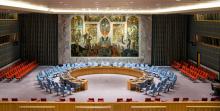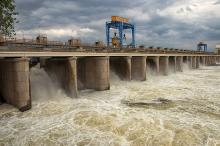As climate change and policy responses grow more intense, prominent, and high-stakes, opportunities will grow for state and non-state actors to spread mis- and disinformation. These mis- and disinformation challenges go beyond climate denialism, and are present across the breadth of climate security risks. These risks comprise the physical impacts of climate disasters, cascading socio political impacts of climate change, and backlash or unintended consequences from climate policies themselves.











